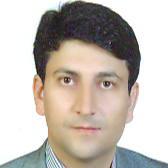
Sattar Hashemi
Work place: School of Electrical and Computer Engineering, Shiraz University, Shiraz, Iran
E-mail: s-hashemi@shirazu.ac.ir
Website:
Research Interests: Computer systems and computational processes, Computational Learning Theory, Data Mining, Data Structures and Algorithms
Biography
Sattar Hashemi received the PhD degree in computer science from Iran University of Science and Technology in conjunction with Monash University, Australia, in 2008. Following academic appointments at Shiraz University, he is currently an associate professor at Electrical and Computer Engineering School, Shiraz University, Shiraz, Iran.
He is recognized for contributions in the fields of machine learning and data mining. He has published many refereed papers and book chapters on data stream classification, game theory, social networks, database intrusion detection, and computer security.
Author Articles
Detection of Metamorphic Malware based on HMM: A Hierarchical Approach
By Mina Gharacheh Vali Derhami Sattar Hashemi Seyed Mehdi Hazrati Fard
DOI: https://doi.org/10.5815/ijisa.2016.04.02, Pub. Date: 8 Apr. 2016
Recent research have depicted that hidden Markov model (HMM) is a persuasive option for malware detection. However, some advanced metamorphic malware are able to overcome the traditional methods based on HMMs. This proposed approach provides a two-layer technique to overcome these challenges. Malware contain various sequences of opcodes some of which are more important and help detect the malware and the rest cause interference. The important sequences of opcodes are extracted by eliminating partial sequences due to the fact that partial sequences of opcodes have more similarities to benign files. In this method, the sliding window technique is used to extract the sequences. In this paper, HMMs are trained using the important sequences of opcodes that will lead to better results. In comparison to previous methods, the results demonstrate that the proposed method is more accurate in metamorphic malware detection and shows higher speed at classification.
[...] Read more.Other Articles
Subscribe to receive issue release notifications and newsletters from MECS Press journals